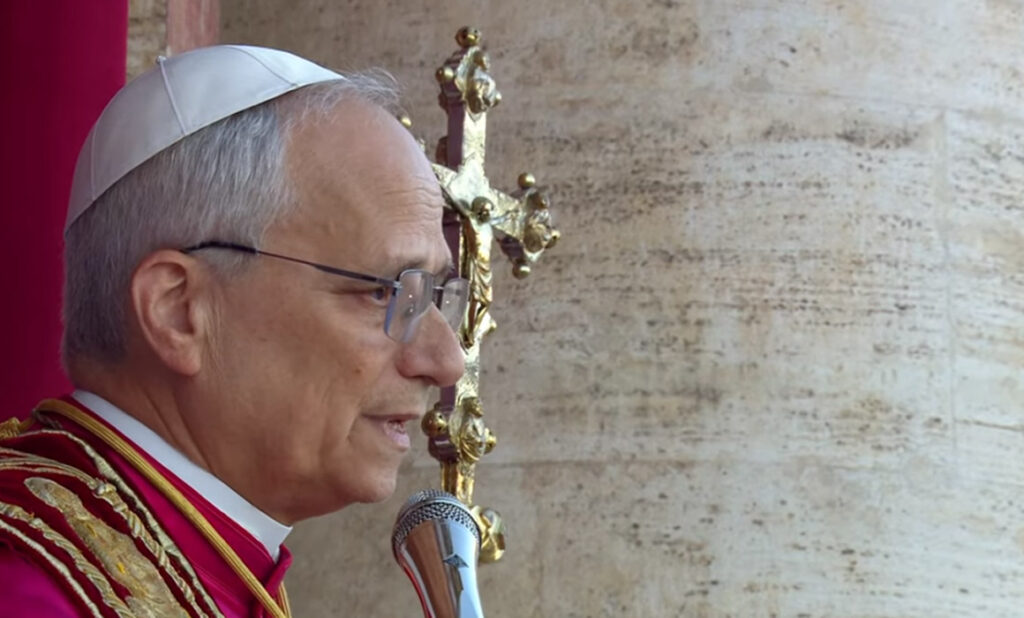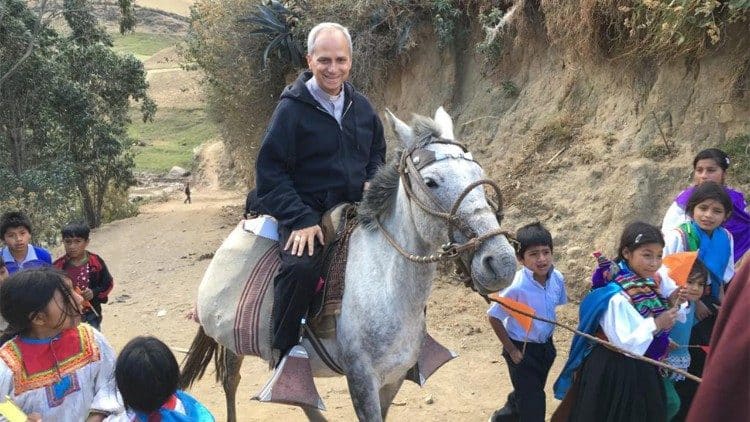“For you I am a bishop, among you I am a Christian”
"Leo XIV: A Pope called to lead the Church toward peace, justice, and unity in times of global challenges"

Habemus Papam! On May 8, the College of Cardinal Electors delivered this good news: We have a new Pope! An election and an event that assures the Catholic Church of its millennia-long apostolic succession in the Petrine ministry. We have a Pope! Good news that fills us with joy and hope.
His main biographical and pastoral details, his Augustinian spirituality, the name chosen to exercise his papacy, his initial message from the balcony of St. Peter’s Basilica, and the few features of the new Pope’s profile, figure, and personality that we are just beginning to learn, can give us clues or insights into what the path he will take in his pastoral ministry as the universal leader of Catholicism and as a spiritual leader for humanity.
ROBERT FRANCIS PREVOST MARTÍNEZ was born on September 14, 1955, in Chicago, Illinois, United States. He is the first American pope and the 267th in the Catholic Church’s history.
From his parents, Louis Marius Prevost and Mildred Martínez, he inherited a blend of Italian, French, African, and Spanish racial and cultural heritage. Robert Prevost studied mathematics, theology, and canon law. His life and novitiate as a member of the Order of Saint Augustine began in 1977. He eventually became, for two terms, the Prior General of the Augustinians, making him the first pope from this religious community, which has a presence in more than 50 countries.
As an Augustinian priest, he exercised his pastoral and missionary ministry in Peru for many years until he was appointed bishop of the Diocese of Chiclayo and acquired Peruvian citizenship there. His dual citizenship also makes him the first Peruvian pope and the second Latin American. Finally, in the Vatican Curia, he served as head of the Dicastery for Bishops.
His spiritual and religious life is guided and marked by the evangelical and Christian imprint of Saint Augustine of Hippo, characterized especially by a tireless search for God in and from the very inferiority of the human being. This search is carried out in community life, with love at the center of everything. Love is the grace of God to transform, sustain, and guide human beings, in humility, to the full truth: that of knowing ourselves to be children of God, serving all as brothers and sisters.
In his first message, the newly appointed Pope spoke of peace as the first greeting of the Risen Lord to the first disciples and as the greatest urgency of humanity and the world today. He reminded us that God’s unconditional love drives away all fear and assures us that good triumphs over evil and that Christ, the Light of the world, precedes us to build bridges and unity through the bond of love, “always seeking peace, justice, always seeking to work as men and women faithful to Jesus Christ, without fear, to proclaim the Gospel, to be missionaries,” for a Church “of dialogue, always open to welcome, like this square, with open arms to all. All those who need charity, our presence, dialogue, and love… We want to be a synodal Church, a Church that journeys, a Church that always seeks peace, that always seeks charity, that always seeks to be close, especially to those who suffer.”
With this wealth of talents and experiences, the new Pope is well-equipped to face the great challenges that today’s world poses to the being and work of the Church, to its very identity, and to the evangelizing task of the Church, which is all of us who are baptized. May this wealth of experiences and gifts inspire all citizens of the world and those of us who—through faith and baptism in Christ—the commitment to be and build the Church.
There are many serious problems that plague human life and social coexistence today: wars, climate change, the unjust distribution of wealth and justice, the impoverishment of the vast majority and social inequality, food insecurity, the violation of human rights, massive human migration movements, the establishment of dictatorial regimes, the loss of biodiversity, the unequal distribution of technological opportunities, and so on.
And within the Church: secularization, the “cultural” tendencies of postmodernism, a “culture of death,” sexual crimes committed by clerics, internal polarization and tensions between ideological, generational, or ideological blocs, the crisis of priestly and religious vocations, etc., call into question or hinder the Church’s ability to fully and authentically fulfill the task entrusted to her by Jesus in the world.
All these problems today become cries and challenges to the Church’s mission in the world, led by Leo XIV.
A man, a religious, a Christian, a pastor, whose racial and cultural blending, his knowledge of several languages, his academic training, his Augustinian spirituality, his missionary pastoral experience in communities of the poorest, his service as General of the Augustinians and as head of the Dicastery for the Bishops of the Entire World, etc., qualify him as a Pope whose mind and heart encompass all of humanity, as a pastor of peace, capable of reconciling and reconciling the north and south of the earth, capable of guiding the Church as a house with open doors for all, a house of compassion and mercy, as the Gospel demands. This gives us hope for the possible continuity of the ministry carried out by his predecessor, Francis, but especially, in keeping with the very logic of the Gospel.
As President of the Academy of Catholic Leaders, present in twenty-two countries, I congratulate all of us who make up this institution, serving and supporting the evangelization of the Church in society, on the choice of the name for the new Pope’s pontificate: LEO XIV. Leo XIII went down in history as the father of the Social Doctrine of the Church, especially with the publication of his Encyclical Rerum Novarum in 1891.
Thus, the name Leo XIV signifies a renewed interest in the Church’s mission in the world, which strives to shed light on and attempt to resolve the serious social problems that plague so many today, especially the “discarded” of the earth.
The Social Doctrine of the Church is the foundation of the vision and mission of the Academy I preside over, and Leo XIV encourages us, therefore, to continue the search for a better Church and a better world, according to the criteria of the Gospel. All of which, in this Jubilee Year of Hope, renews our hope for better times for all.
Fair winds and fair seas to the Barque of Peter, with Leo XIV as captain and helmsman! Ad multos annos!
Mario J. Paredes – President of the International Academy of Catholic Leaders
Related
 (EN)
(EN)
 (ES)
(ES)
 (IT)
(IT)





